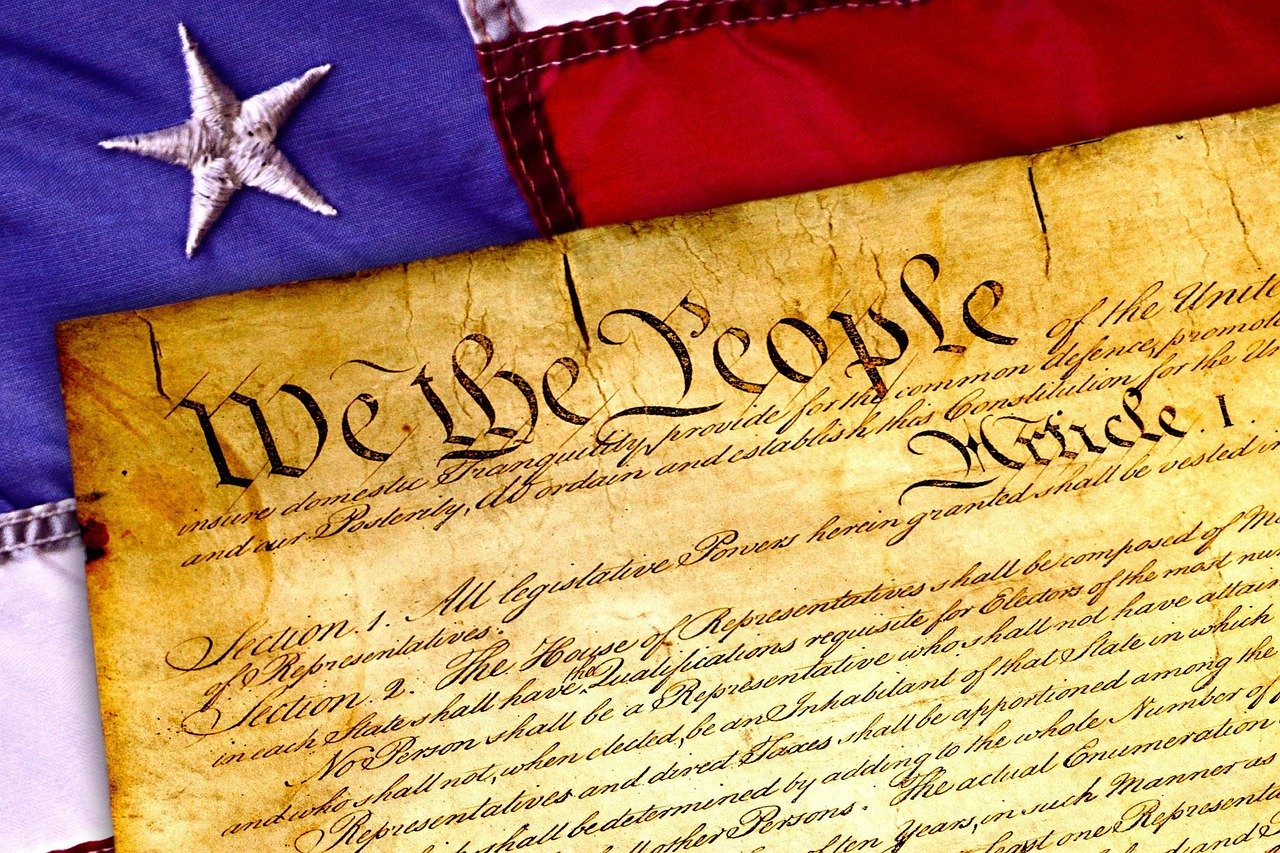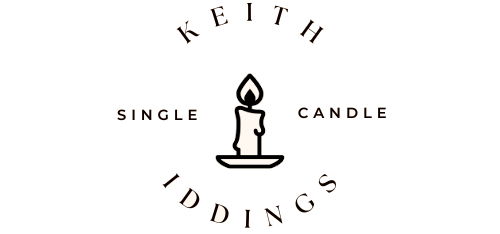On Pronouns & July 4th

It may be peculiar on an auspicious holiday such as July 4th to reflect on something as inauspicious as a pronoun. But I think the American birthday and the first person plural pronoun are profoundly interconnected. The connection is emphatically highlighted in the oversized first word of the United States constitution. “WE”!
So what exactly does the little word “we” have to do with America’s heritage? Much indeed. Kings in European monarchies regularly used the regal plural in the centuries prior to 1787. Such language was meant to imply that the King or Queen somehow embodied and spoke for all the citizens in a particular nation. Because all political power rested in a single individual, the word of the prince was inviolable. Inhabitants of the country had no choice. If the king spoke it, whatever the average person thought was of no consequence. The king’s word expressed the will of the nation whether it was loved or hated.
While some elements of monarchy had begun to take into account the voice of the larger population by the 18th century, the king still held the ultimate power. That changed with the US Constitution. Power in these United States became vested in “We, the people!” At least that was the ideal put forth by the constitutional convention.
The world has been radically changed for the better by this ideal. Democracy “of the people, by the people, and for the people” — democracy where power truly rests with “we” — has been adopted around the globe by those wishing to create a just society focused on the common good. Though not without problems, there seems no question that an enfranchised people is in a better position to implement policies and governance systems that serve the wider population.
The ideal of “We the people” has had a hard time becoming the reality on the ground, however. The “we” started out rather limited. In the late 18th century, “we” really only meant white, protestant men who owned property. Most of the population was excluded from the “we” including women, slaves, Native Americans, free Blacks, Jews, Catholics, and poor people of European descent. But some progress was slowly made. By 1828, religion ceased to be a determinant for voting. By1856 white men with no property could vote.
Yet it seems the 19th century was characterized by one step forward and two steps backward. With the end of the Mexican American War, 1848 saw new exclusions. Trapped in the United States when half of Mexico was taken over by the US military (including Texas, California, Nevada, Utah, New Mexico, most of Arizona and Colorado, and parts of Oklahoma, Kansas, and Wyoming), stranded Mexicans were granted automatic American citizenship. However, states refused to allow them to vote unless they could speak English. In 1870, Black men were guaranteed the rights of citizenship — except that many states passed laws that made exercising the vote by Blacks all but impossible.
In 1876, one hundred years after the Declaration of Independence’s affirmation that “all men are created equal,” the United States Supreme Court ruled that the 14th amendment did not apply to Native Americans and that they could not be citizens. In 1881, The Chinese Exclusion Act made it impossible for persons of Chinese ancestry to gain citizenship. In 1922 that exclusion was extended to anyone of Asian ancestry including Japanese and Indians. “We the people” remained largely men of white European descent.
The ideal embedded in the words of the Constitution took a turn for the better one hundred years ago in 1920. With the passing of the 19th amendment, women (at least white women) were given the right to vote. In 1924, Native Americans were granted citizenship, but along with Americans of African descent, they were largely kept from voting. Then in 1947, a legal battle resulted in Native Americans being allowed to cast their ballots. In 1952, Asians-Americans, too, gained access to citizenship and the voting booth.
Still, in many parts of the United States, African Americans were excluded from “we.” Only after the intense civil-rights struggles of the 1950’s and 60’s, were substantial changes made to voting rights, stripping states of the right to disenfranchise on the basis of onerous rules targeting specific racial groups. (For a quick understanding of the voting rights timeline see “Who got the right to vote when?” )
Though fifty-five years have passed since President Johnson signed the voting rights acts, the ideal of the nation’s founders remains difficult to achieve. State legislatures continue to gerrymander congressional districts to diminish the power of a particular group’s vote. Laws are still passed that disproportionately exclude or discourage election participation by particular groups. (For example, the requirement of a state-issued picture ID or the demand that all registered voters have a permanent street address.) Voting locations in minority communities may be limited and inadequate. The right to vote as a member of “we the people” continues to be under assault.
Why does America have such a problem with the little word, “we?” I believe it’s because those with the most cultural power have refused (consciously or unconsciously) to embrace a broad and diverse view of who “the people of the United States” really is. The corridors of power both politically and economically are traversed by those who still hold that America the Beautiful is and ought to be white, Christian, and English-speaking. The others who live from sea to shining sea may be tolerated, but they will never really be part of the “we.”
Take for example our current president’s speech at Mt. Rushmore last evening. In his almost 45 minute speech celebrating our nation’s founding, I counted about 20 times when he referred to particular groups of American citizens as “they” in contrast to his own identification with “we.” They were “angry mobs.” While we are peace loving. They are the “radical left” bent on the destruction of our great history. While we remember our history and values. We are arresting hundreds of them and putting them in prison for a very long time. They are “liberal democrats” while we are true Americans. The individuals he was setting apart from the “real” citizens by his disparaging remarks about “they” are not some foreign enemy. They are Americans, just as he is. Yet his pronouns exclude them.
I don’t mean to single out President Trump as uniquely cynical or the originator of some new movement. Rather, he is a mirror reflecting the views of a large portion of the dominant culture in our great country. While I believe he is using his unique position to exacerbate a persistent problem when he could be calling us to truly live up to the ideals, he did not begin the problem and the end of his presidency will not end it.
I must put up with our duly elected president at least until the next election. But because I believe in the unique WE of the constitution and all it entails, I believe both you and I and all our concerned countrymen and women have responsibility to push this, our nation, in the right direction. You and I must get involved in expanding the we to all who call America home. You and I must work to see that all who are entitled to vote, can indeed exercise their franchise. You and I must endeavor to no longer use or tacitly condone the language of us and them. If the words of the Declaration of Independence and the Constitution are to continue to have significance, all of us must challenge the mindset of exclusion and inequality. We cannot just look to our leaders. The president, the senators, the representatives, the bureaucrats, the justices, the governors, the mayors are not this country. WE are!
Abraham Lincoln clearly understood the tenuous nature of the American experiment. The success of “We the people” wasn’t (and isn’t) a certainty. He knew just how fragile it was. At the dedication of the cemetery for the fallen soldiers in the battle of Gettysburg he made this famous statement.
It is for us the living, rather, to be dedicated here to the unfinished work which they who fought here have thus far so nobly advanced. It is rather for us to be here dedicated to the great task remaining before us — that from these honored dead we take increased devotion to that cause for which they gave the last full measure of devotion — that we here highly resolve that these dead shall not have died in vain — that this nation, under God, shall have a new birth of freedom — and that government of the people, by the people, for the people, shall not perish from the earth.
Apt words — even for 2020. Time to roll up our sleeves. Though we’ve come a long way since 1776, much work still remains!


One Response
You always give me some delicious bone to naw on Keith. Thank you for laying out this wandering timeline of the vote in America. Many of our brothers and sisters have fought (and still fight) to make their vote and their will known!
Comments are closed.